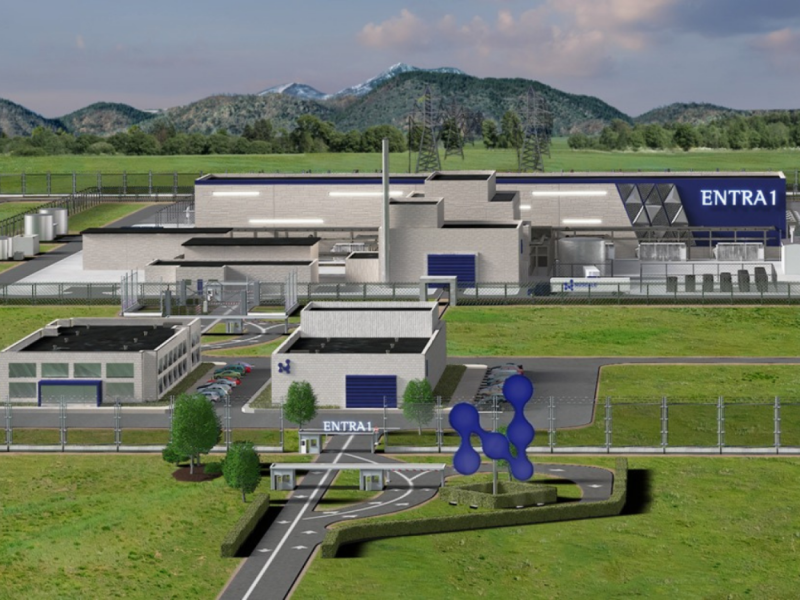
WASHINGTON D.C. – In a move that prioritizes industry profits and unproven technology over public safety, the U.S. Nuclear Regulatory Commission (NRC) has rubber-stamped NuScale Power's 77 megawatt-electric (MWe) small modular reactor (SMR) design. Hailed by its corporate proponents as a "leap toward clean energy," this decision by the NRC is a chilling confirmation of a dangerous trend: fast-tracking nuclear expansion at any cost, regardless of mounting safety, economic, and environmental concerns.
Fast-Tracking at What Cost? Public Safety Sacrificed for Speed
The NRC's alarming pace in approving this complex nuclear technology is a direct consequence of political pressure, not thorough safety assessment. Completing the technical review in under two years – a timeframe unprecedented for nuclear reactor design approvals – clearly demonstrates a rushed process. This acceleration aligns with recent executive orders explicitly aimed at slashing licensing timelines and pushing for reactors on federal lands. While claimed to address energy demands, including those from AI-driven data centers, this breakneck speed fundamentally compromises the depth and rigor of safety evaluations. The question remains: what critical safety components were skimmed over, and what risks are the American public now being forced to bear?
Economic Disaster on Repeat: Taxpayer Subsidies Fuel a Failing Model
NuScale's economic viability is already in tatters. The company's prior SMR project with a Utah power group collapsed in 2023, a direct result of skyrocketing costs and a complete lack of municipal interest. This abject failure occurred despite NuScale gorging on over $1.35 billion in taxpayer-funded government support. The approval of this new 77 MWe design, while touted as "improved," does nothing to alleviate the fundamental financial instability plaguing SMR deployment. This is not a clean energy solution; it's a financial black hole, perpetually propped up by public funds while remaining economically uncompetitive against traditional reactors and, crucially, genuine renewable energy sources like solar and wind. Approving this design simply sets the stage for another costly taxpayer bailout.
The "Passive Safety" Fallacy: More Reactors, More Risk
Proponents peddle SMRs as inherently safe due to "passive safety features" that supposedly use natural processes for cooling. This claim is a dangerous illusion. The widespread deployment of numerous smaller reactors like NuScale's would drastically complicate regulatory oversight, creating a fragmented and potentially unmanageable nuclear landscape. More reactors, by their very nature, mean an increased cumulative risk of nuclear incidents, multiplying potential points of failure across the country. Furthermore, the dirty secret of nuclear power—unresolved nuclear waste management—is entirely ignored by this approval. Every single SMR will produce hazardous, long-lived radioactive byproducts requiring secure storage for millennia, compounding a problem for which no permanent solution exists. The NRC's decision conveniently sidesteps this existential threat, leaving future generations to grapple with today's nuclear waste.
Erosion of Public Trust: Decision-Making Behind Closed Doors
The aggressive push for rapid nuclear expansion, fueled by massive government subsidies, is happening with a shocking lack of transparency and genuine public engagement. Communities slated to host these proposed reactor sites are routinely sidelined in the decision-making processes, leading to justified public outrage, potential resistance, and inevitable legal challenges. When critical energy infrastructure decisions are made by executive fiat and without robust public involvement, trust in both regulatory bodies and the nuclear industry itself erodes. This approach undermines democratic principles and leaves local populations vulnerable to the direct impacts of nuclear facilities.
Conclusion: A Dangerous Precedent for the Future
The NRC's approval of NuScale's 77 MWe SMR design is a dangerous milestone for the nuclear industry, but a grave setback for public safety and environmental responsibility. It exemplifies a troubling trend where innovation is prioritized over rigorous oversight, economic viability is ignored, and community engagement is an afterthought. As the U.S. hurtles towards an energy future driven by short-sighted directives, it is clear that nuclear advancements are being pushed at the expense of safety, financial prudence, and the fundamental right of communities to be safe from nuclear harm.
Add comment
Comments